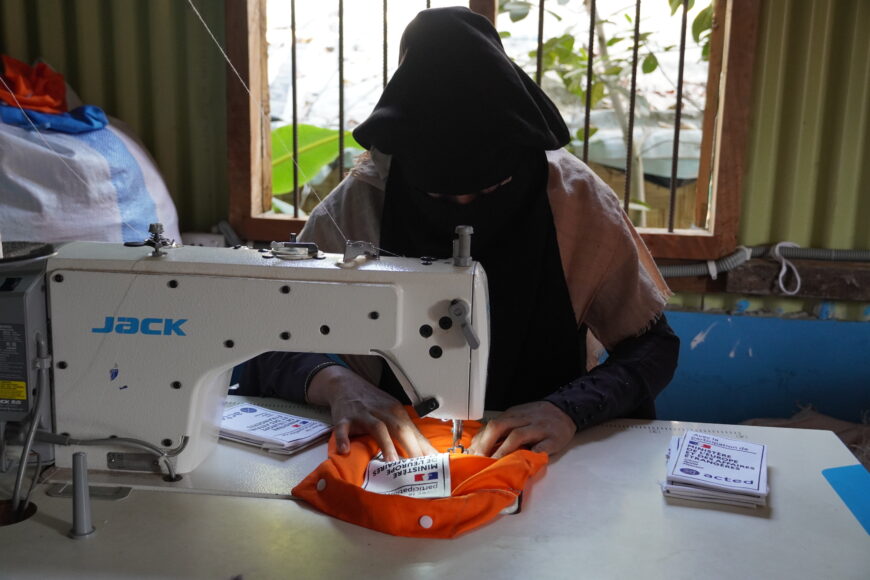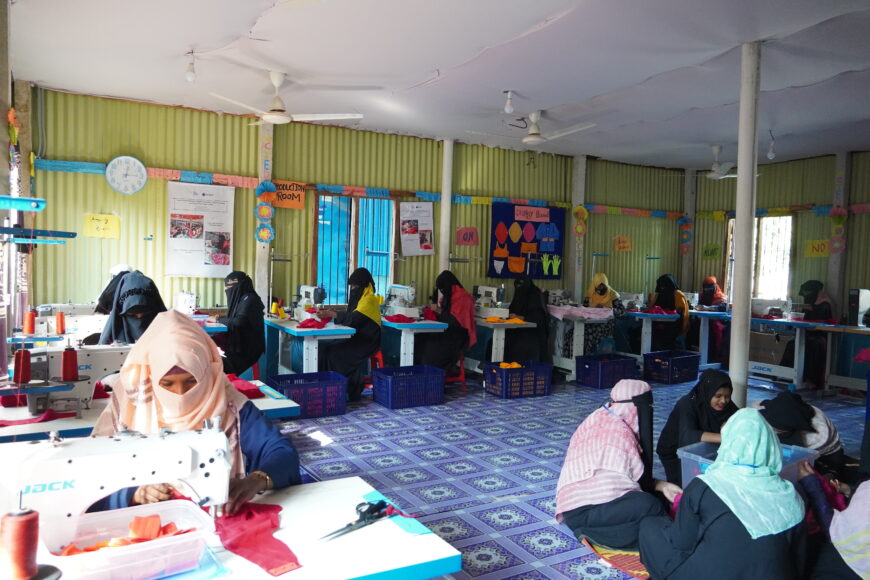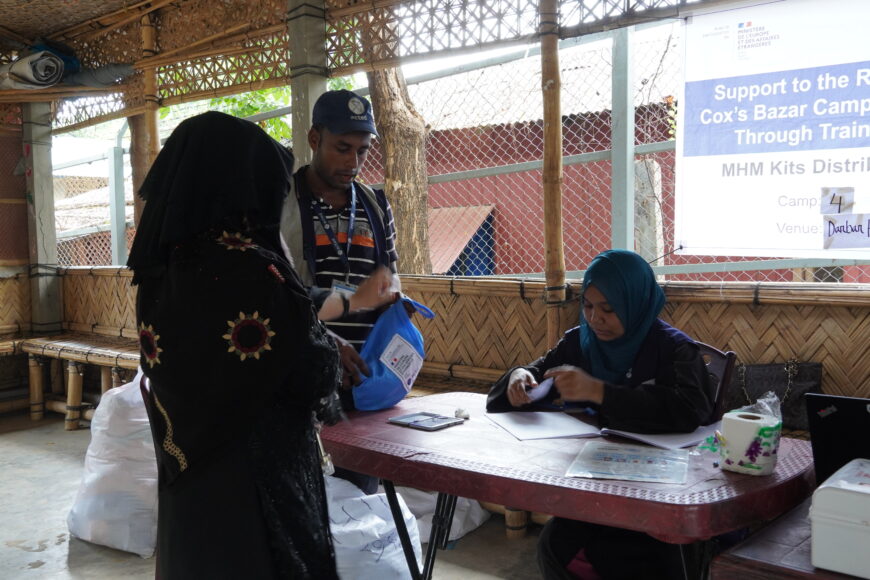In a continued effort to improve sanitary conditions and promote dignity among displaced Rohingya communities, Acted Bangladesh, with the support of the Crisis and Support Centre – CDCS, has implemented a 13-month project aimed at enhancing hygiene practices and empowering women through skills-building and awareness activities in Cox’s Bazar camp settlement.
Launched in June 2024, the project targets residents of three camps with a focus on female hygiene management and community-based waste management, addressing critical gaps in Water, Sanitation, and Hygiene (WASH) services.
The densely populated conditions of the 33 Rohingya camps in Cox’s Bazar pose ongoing public health risks, particularly for women and girls. Social taboos around menstruation and limited access to hygiene materials have left many vulnerable to negative health impacts as well as emotional and social challenges.
To address this, Acted trained 90 women volunteers in three cycles over three months to produce essential hygiene items to be included as part of Menstrual Hygiene Management (MHM) and cleaning kit. These included reusable sanitary pads, undergarments, and traditional Rohingya innerwear called “bodoli”, as well as cleaning kits comprising reusable gloves, face masks, and aprons. The items were selected based on community feedback and lessons from previous project phases.
Under the project, Acted has produced 67,264 reusable sanitary pads, 33,030 undergarments, 22,196 bodoli, 3,464 pairs of gloves, 7,467 face masks, and 2,126 aprons. These products have been used in the distribution of 11,000 MHM kits and 2,000 cleaning kits across three camps, supporting women’s dignity, hygiene, sanitation, and safety through sustainable, community-centred solutions.
Restoring Dignity: Rashida’s Story

For Rashida, a 32-year-old displaced Rohingya woman, menstruation was once a source of anxiety and shame. “I had no choice but to use old clothes,” she shared. “It made me feel uncomfortable and afraid of infections.”
Through Acted’s intervention, Rashida received a comprehensive MHM kit bag containing six reusable sanitary pads, 3 undergarments, 2 upper inner wear, 400 grams of washing powder, a dozen cloth drying clips, a kit storage bag, and a user guideline.
Now, I feel confident and comfortable. I can go about my day without fear or embarrassment. Every woman deserves this kind of support.
Sewing a Path to Self-Reliance: Hamida Banu’s Story
Hamida Banu, a single mother of three, faced significant challenges before joining Acted’s hygiene kit production centre. Living in a refugee camp with limited livelihood opportunities, she struggled to support her children, and the lack of access to skills training left her with few options to improve her family’s situation.
Hamida joined the production centre in early 2024, and through hands-on training, she mastered modern sewing machines and learned to produce reusable hygiene items. After receiving a certificate in hygiene kit production skills, she secured a job at another NGO’s production centre, where she now works alongside her adult daughter, enabling them to enhance their livelihoods and dignity. Hamida’s journey is a testament to how livelihood training and cash-for-work opportunities in the camp are transforming lives.

Building Resilience Through Inclusion
Acted’s approach puts inclusion at the heart of its work, ensuring that at least 50% of those supported are women, 25% are from host communities, and 5% are people with specific needs, fostering equity, participation, and social cohesion, in a setting where tensions and exclusion could otherwise easily arise.
This project is not just about hygiene—it’s about dignity, empowerment, and resilience. By equipping women with skills and tools, this project enabling us to lead healthier, more confident lives.

Acted remains committed to strengthening community ownership of hygiene practices and expanding access to essential services. By engaging 736 beneficiaries in the production of hygiene kits and leading 54 community cleaning campaigns, the project has fostered sustainable hygiene habits and collective action. The initiative stands as a model for integrated, community-driven WASH interventions in humanitarian settings in Cox’s Bazar.